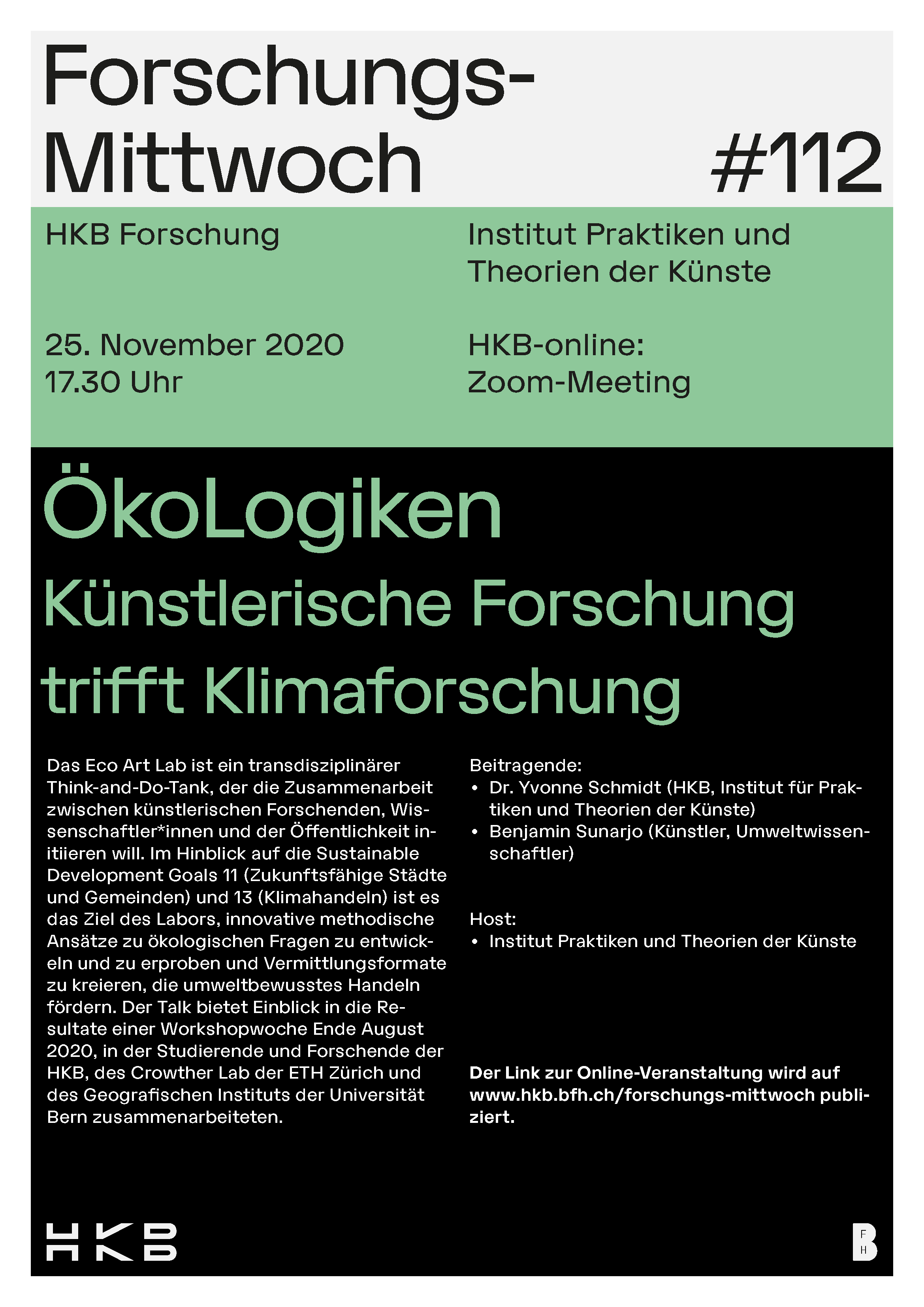Interventions
At the heart of the EcoArtLab lies the concept of Interventions – designed to break down disciplinary boundaries, disrupt conventional approaches, foster creative thinking and emphasise collaborating on eye-level that allows to question and critically reflect existing power dynamics and hierarchies. The EcoArtLab currently undertakes interventions through three primary formats: developing and implementing inter- and transdisciplinary residencies, teaching in terms of facilitating workshops within academic institutions, and organising public and semi-public workshops and events.
In our interventions, such as art-science residencies, workshops or summer schools, often in collaboration with various partners we embrace new practices of knowledge production.
current Residency
Plankton
Ecosystems – Shaping the Narrative of Climate Change
The Pro Helvetia Synergies project «Plankton Ecosystems» is a participatory art-science program by the EcoArtLab that seeks to understand plankton diversity and its role in climate change from a non-anthropocentric perspective. Its focus is on community science technologies, collaborative art formats, and experiential learning about marine ecology and ocean literacy, while exploring the connections and interactions between different bodies of water.
Plankton is extremely sensitive to environmental changes, and their condition is crucial for the well-being of all marine life. For example, phytoplankton provides more than 50% of the oxygen supply through photosynthesis and binds large amounts of carbon dioxide. It is therefore necessary to develop an awareness of aquatic networks and to reflect on the socio-political rights of living and dying waters.
«Plankton Ecosystems» takes a place-based approach that considers the different conditions in aquatic ecosystems and establishes relationships between the Alps, rivers, lakes in Switzerland, and the sea. It builds an artistic-scientific knowledge base about aquatic ecosystems, focusing on the role of plankton in marine ecosystems and the regulation of the Earth's climate. The collaboration uses film and storytelling, building on sensory experiences, to explore the connection between water and imagination, emotion and physical reality.
The interaction between artists, researchers and the public aims to promote an inclusive understanding of water landscapes and transfer it to new contexts. Participatory formats such as study groups, art-science talks and workshops, and an artistic workbook on community science will be used to bridge the gap between knowledge and action in society.
«Plankton Ecosystems» is carried out in close collaboration with the SNSF project "Relational Encounters between the Arts and Climate Research", which provides an analysis of the project through the lens of artistic research and the practices and methodological approaches of its implementation.
Project management: Riikka Tauriainen
Project responsibility: Yvonne Schmidt
Participants: Franco Borgogno (European Research Institute, ERI), Marta Musso (marine biologist), Johanna Paschen (PhD researcher), Thubten Jonas Shontshang (coordinator), Meike Vogt (Swiss Federal Institute of Technology Zurich, ETH)
Study group: Andrea Bordoli (University of Bern, Institute of Social Anthropology), Nicolle Bussien (artist), Jinat Hossain (University of Bern, Institute of Geography), Celestina Widmer (University of Fribourg, Department of Contemporary History)
Partners: ERI: European Research Institute, Turin, Italy; ETH: Environmental Physics Group, ETH Zurich; Kunsthaus Biel Centre d'art Bienne; Kunstmuseum St. Gallen
Duration: 3/2024–12/2025
Funding: Pro Helvetia
Contact: riikka.tauriainen@hkb.bfh.ch
Waterscapes: An Art-Science Workbook is out:
A living workbook emerging from the project Plankton Ecosystems, developed through artistic-scientific field research, workshops, and shared exercises.
The workbook invites readers to observe, sample, map, and draw water bodies, and to engage with plankton and other microscopic life forms that shape aquatic ecosystems but often remain invisible.
An open format meant to be activated in classrooms, workshops, community science, and artistic practices.
Languages: English, Italian, and German.
DOWNLOAD HERE FOR FREE
former Residency
Dialogue as means of understanding and empathy
The effects of climate change are not distributed fairly and increase inequality between the global South and the global North. Examples of this are the links between climate change, environmental change and often unwanted migration and mobility. In cooperation with the Ballenberg Open-Air Museum and the development organization Helvetas, the EcoArtLab (HKB) and the mLAB (Institute of Geography, University of Bern) are organizing a transdisciplinary residency on the topics of climate change, migration and inequality. The collaboration between art, design and science aims to make connections visible and discuss options for action. Experimental and new methodological approaches and forms of knowledge production are therefore being used.
The interdisciplinary team, consisting of Alisha Dutt Islam, Nora Gailer and Christa Hermann as advisor, will establish an intergenerational and intercontinental dialog during the residency. From an ecofeminist perspective, this will be examined as an instrument for empathy, change, and resistance. The residents bring together two geographical points that are affected differently by climate change: The Swiss Alps, Europe’s freshwater reservoir, whose rivers reach the North Sea, the Mediterranean and the Black Sea - threatened by melting glaciers and drought, and the Sundarbans in the Ganges Delta, the largest mangrove forests in the world - threatened by recurring cyclones and flooding. In this way, the residents weave a fascinating web of generational knowledge and places from the perspectives of the beginning and the end of a river.
During the summer months in 2024, the residents are opening their research to the public and inviting them to a workshop where they build and implement their artistic installation into the current themed trail “On the Move Worldwide” at the Open-Air Museum Ballenberg. They will also present the results of their artistic
and scientific work at the Ballenberg Open-Air Museum on September 7 as part of the “European Heritage Days”, organised and facilitated by HELVETAS.
The project is in close cooperation with the SNSF-project “Relational Encounters between the Arts and Climate Research”, which analyses the institutional framework and conditions of the residency and the practices and methodological approaches of its implementation.
Project management: Mirko Winkelried & Thubten Jonas Shontshang
Project responsibility: Yvonne Schmidt
Participants: Alisha Dutt Islam, Christa Hermann and Nora Gailer (Collective Terravibe)
Partners: Ballenberg Open-Air Museum, Helvetas, mLAB (Institute of Geography, University of Bern)
Duration: 03/2023–09/2024
Funding: Helvetas
Teaching
Through our teaching and workshops within the academic context, we build connections between research and education, as well as across various disciplines and institutions. These connections enable unique moments and collaborations that are often atypical for the respective fields of study.
Workshops & Events
With a series of different events, the EcoArtLab creates opportunities for insights into various facets of our ongoing activities. Engaging with diverse audiences between the academic and the public spheres, we seek to facilitate dialogue, build connections between different stakeholders and provide moments for in-depth exploration and collaborative exchange.

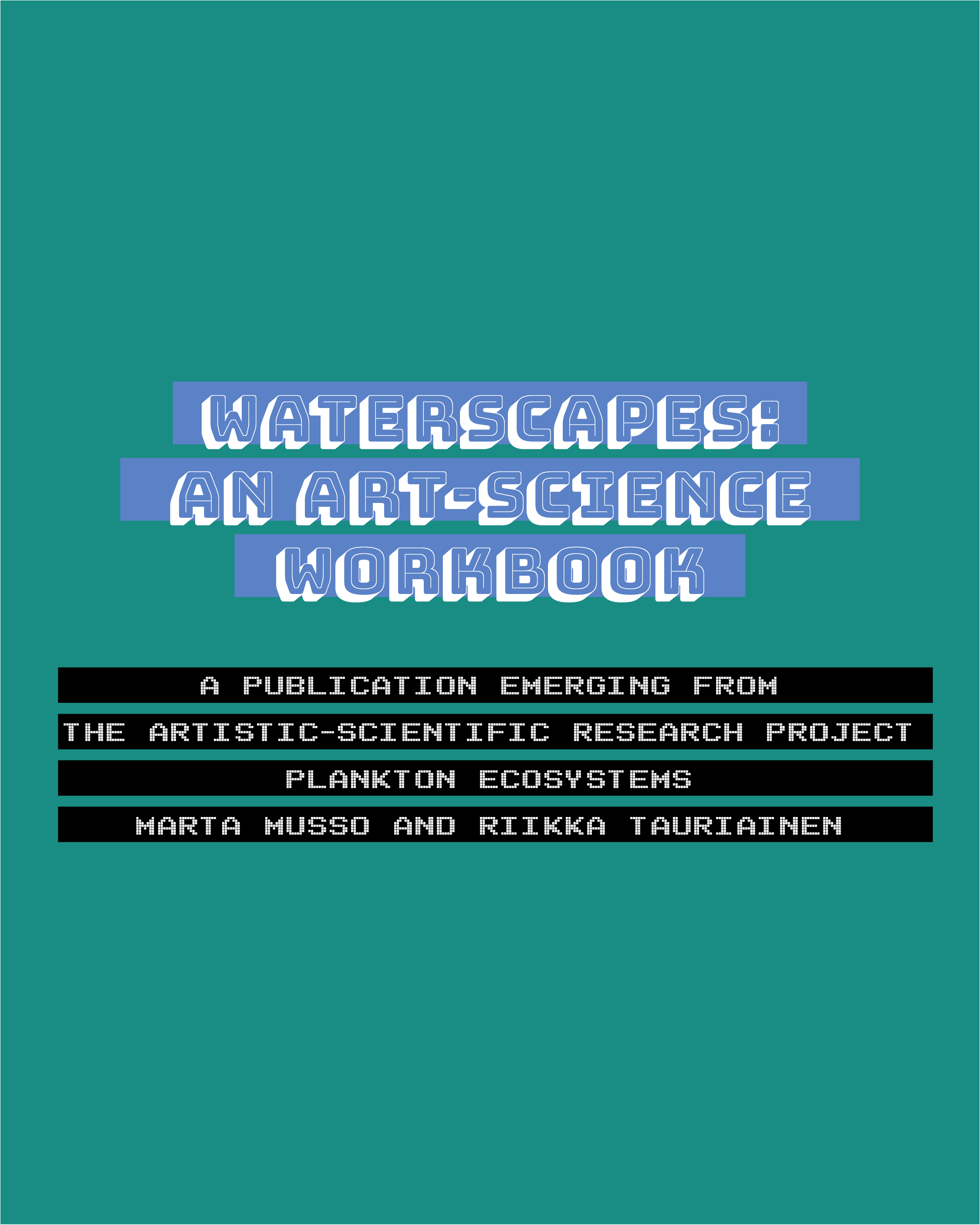 news, publication, intervention, Plankton Ecosystems
news, publication, intervention, Plankton Ecosystems
 Residency open arts lab & Workshop:
Residency open arts lab & Workshop:
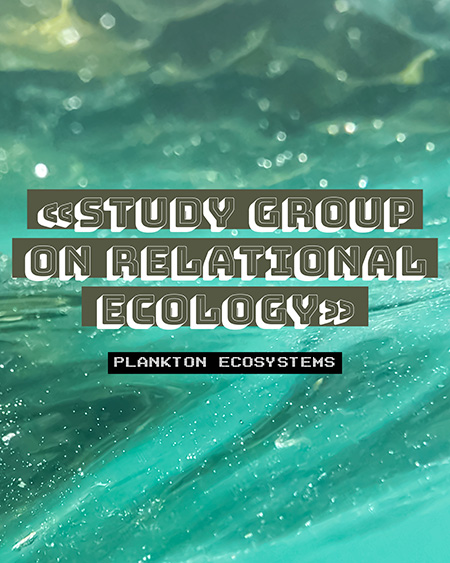 Study Group:
Study Group: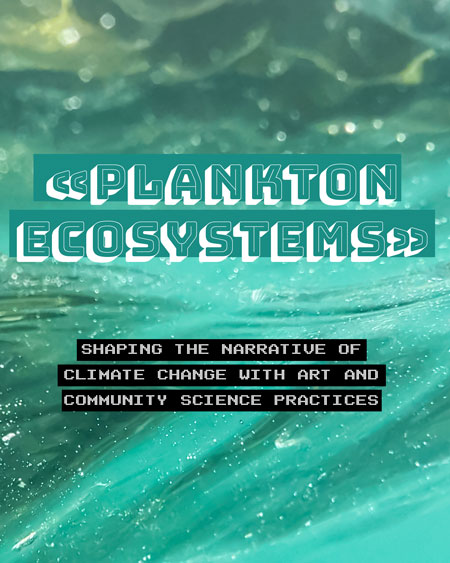

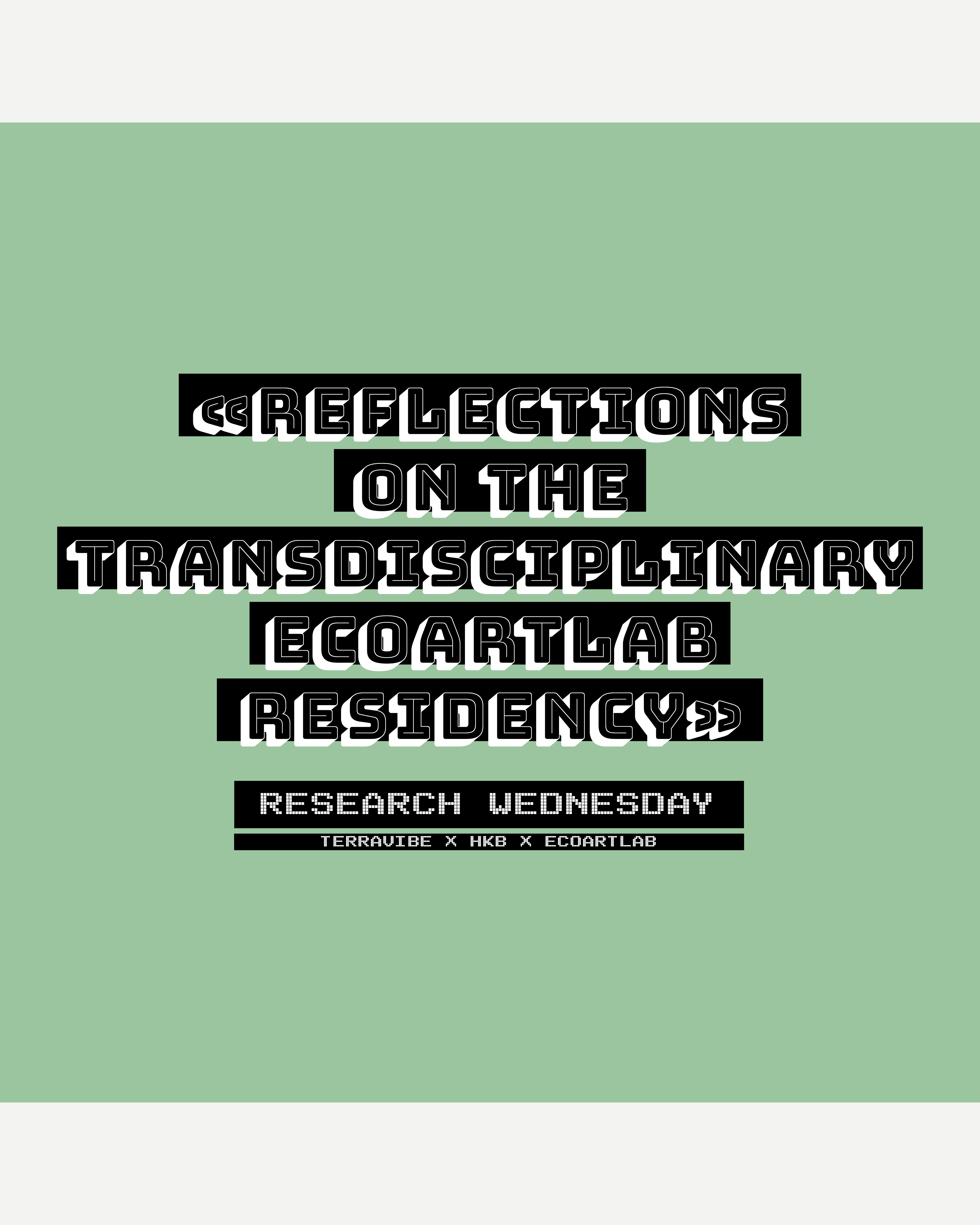 Research Wednesday:
Research Wednesday:

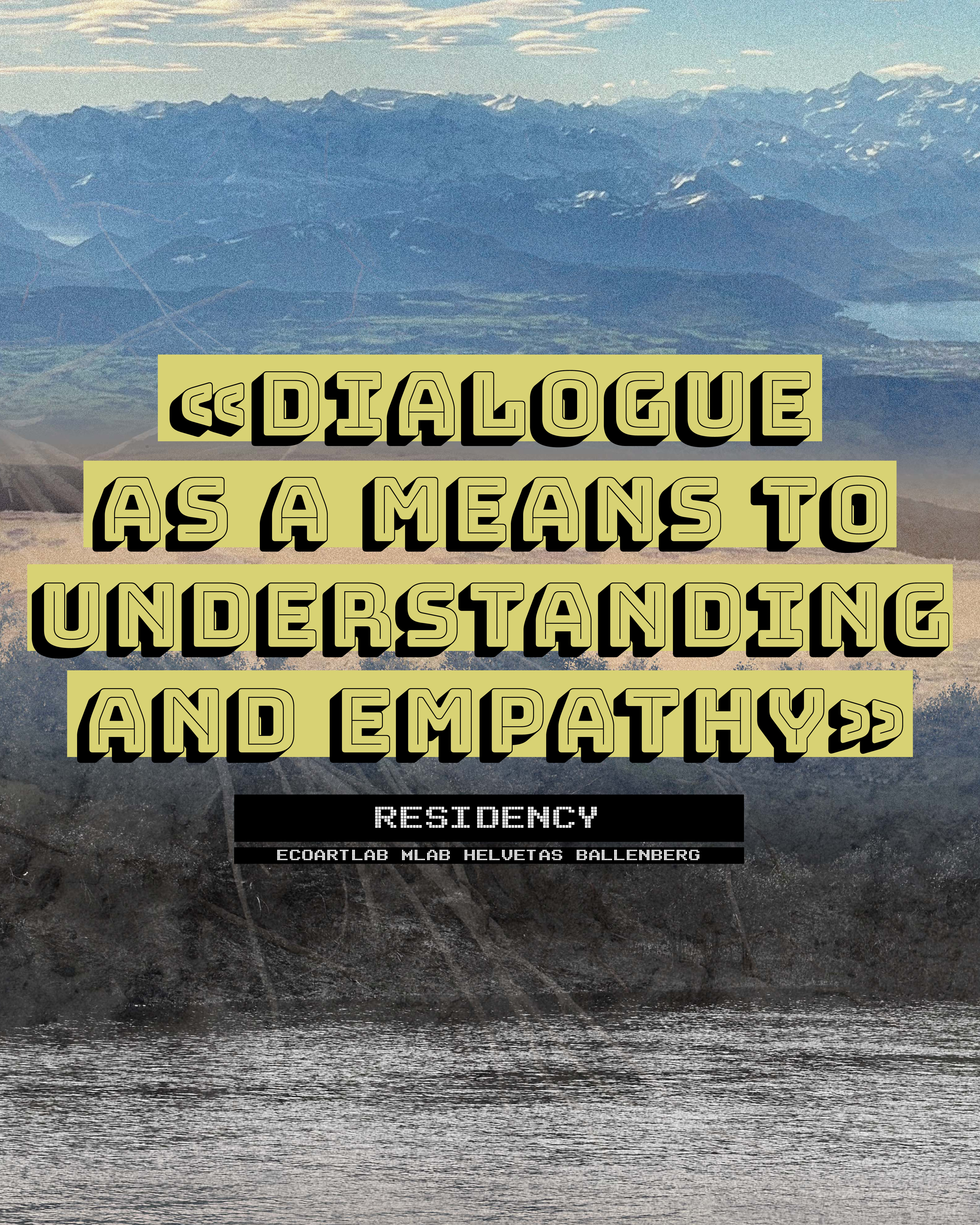 Update on the Residency:
Update on the Residency:
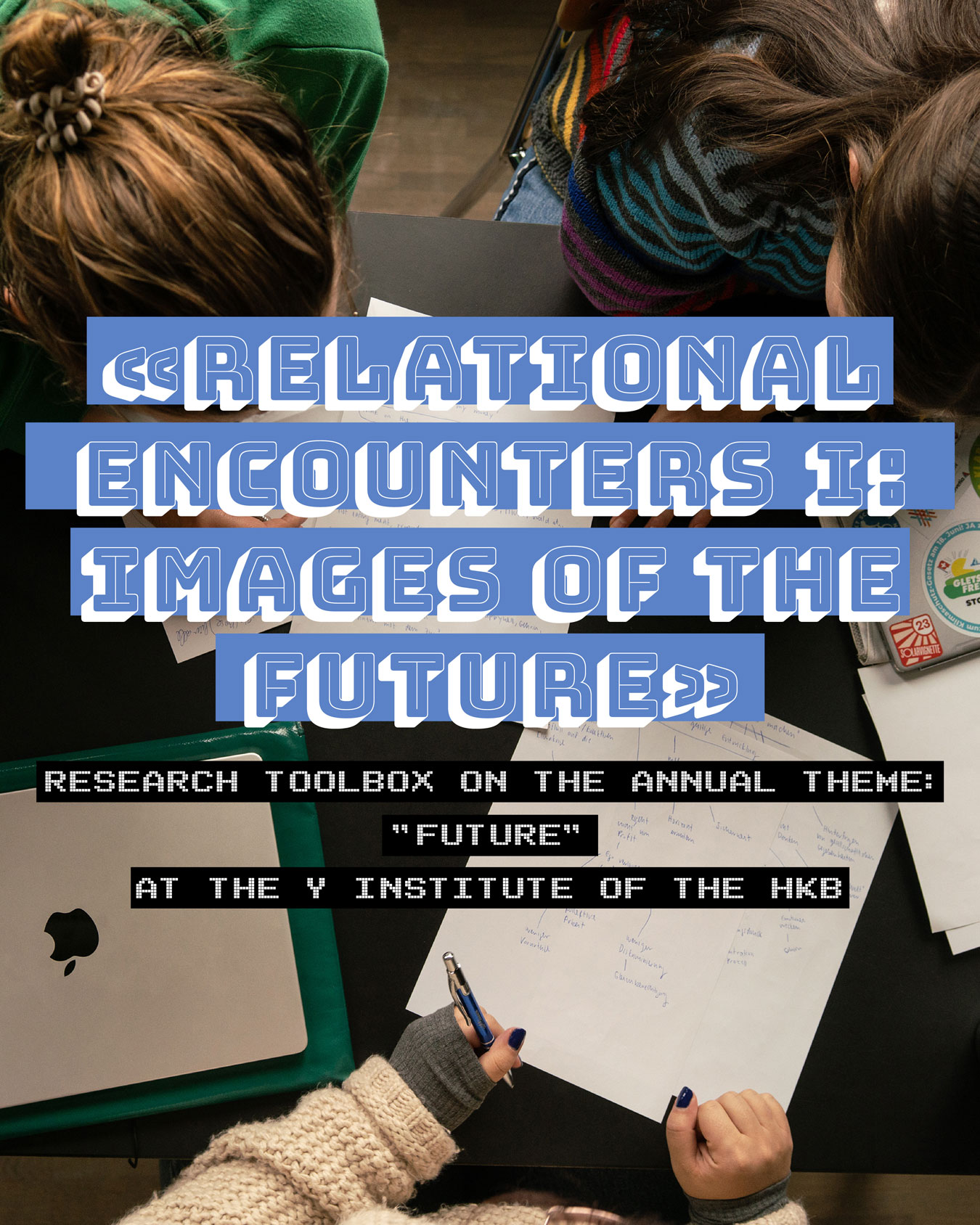


 Study Group Guest Contributor: Monica Ursina Jäger
Study Group Guest Contributor: Monica Ursina Jäger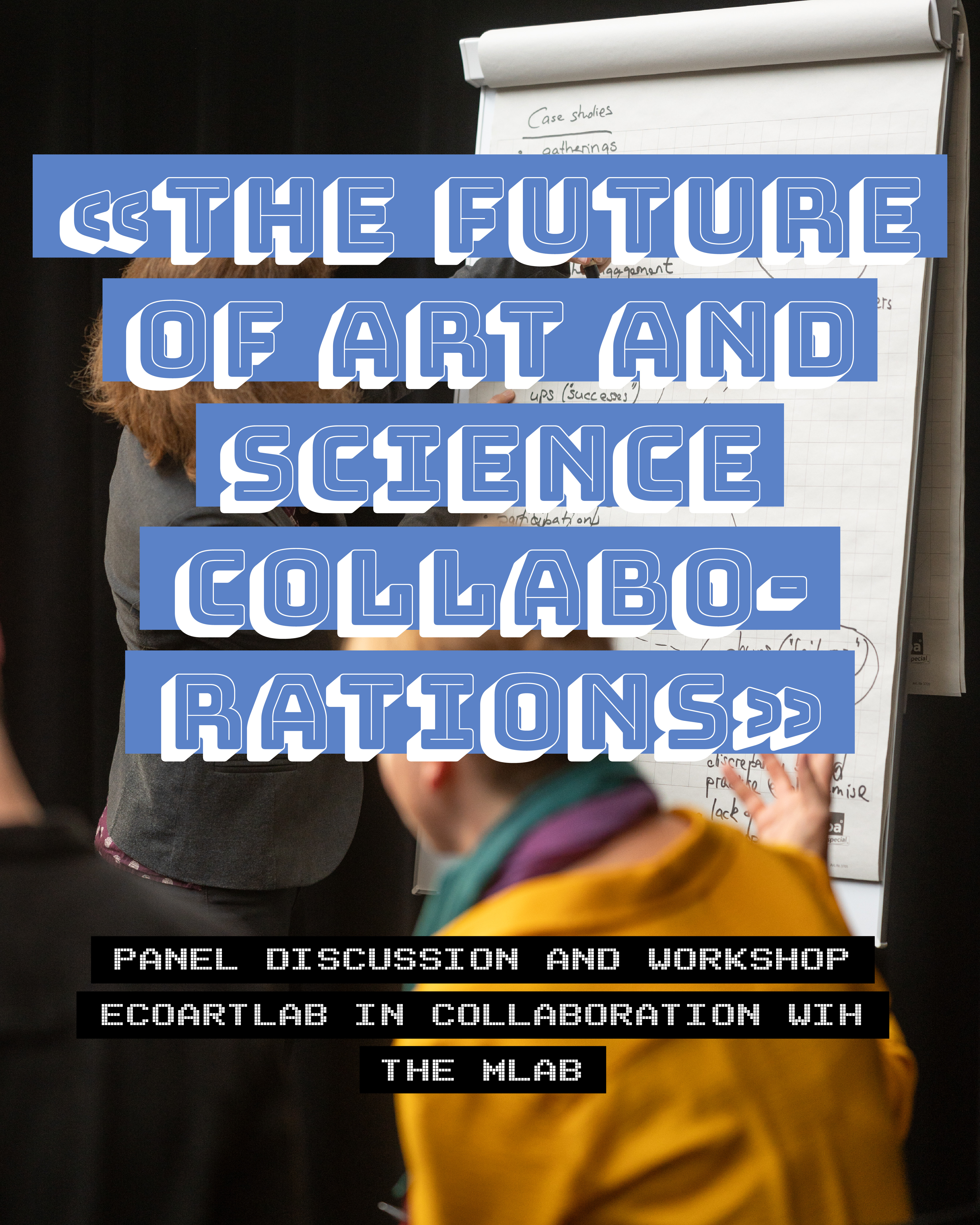
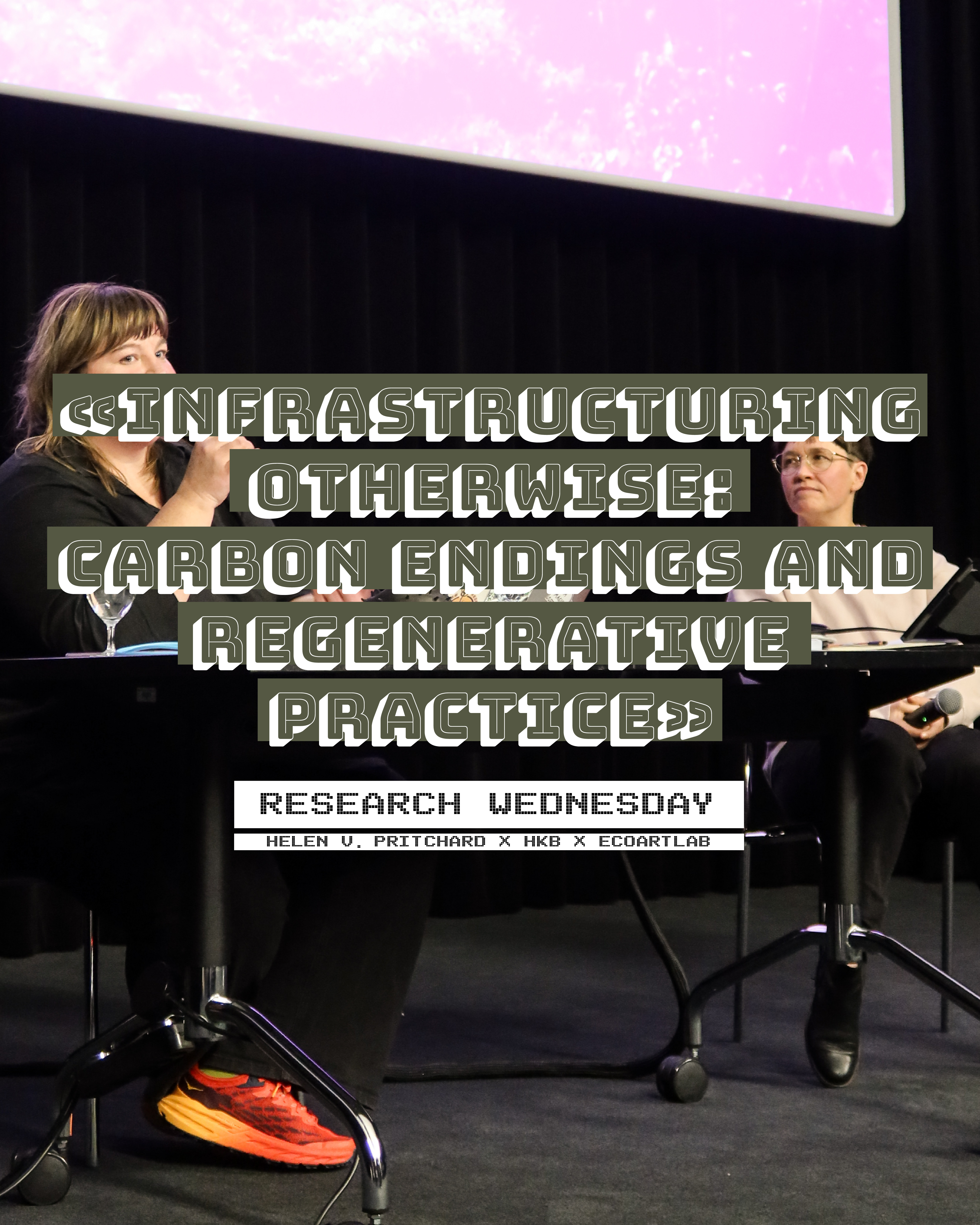 Research Wednesday:
Research Wednesday: Summer School 2022:
Summer School 2022: